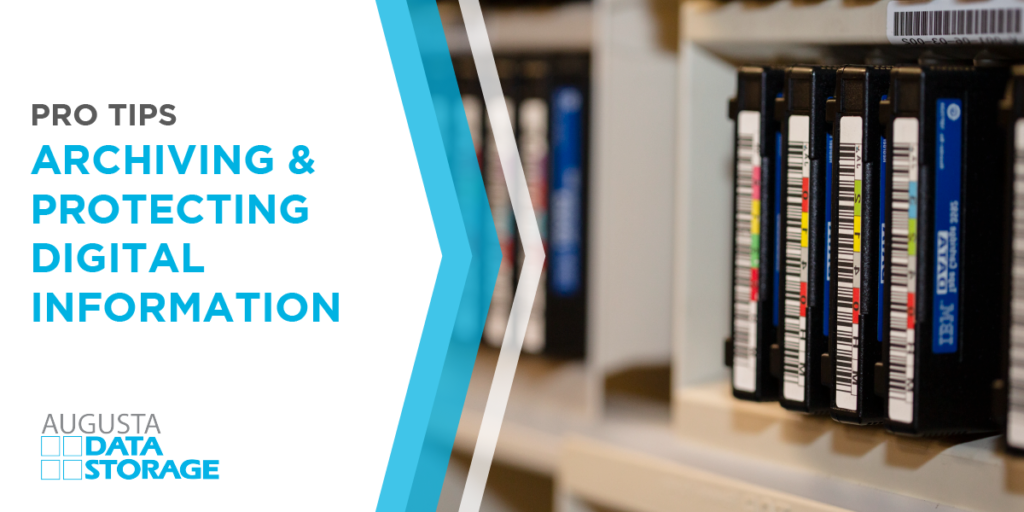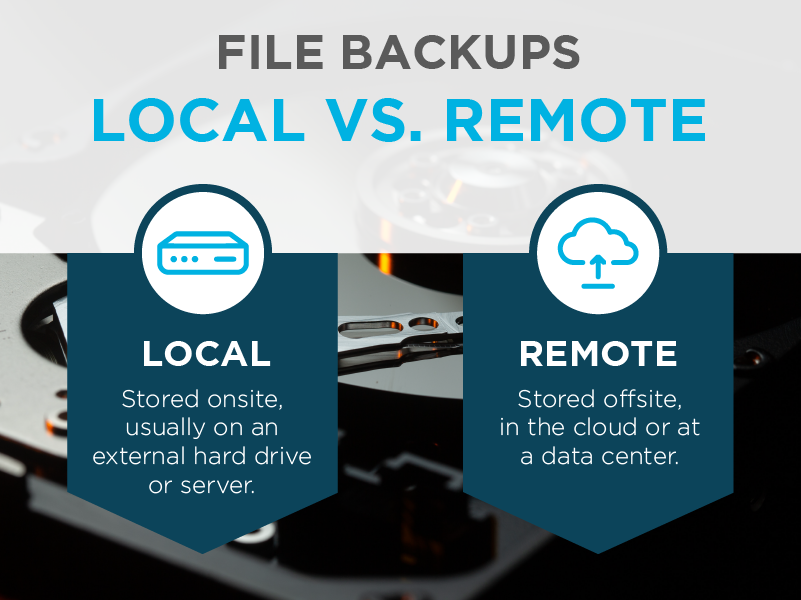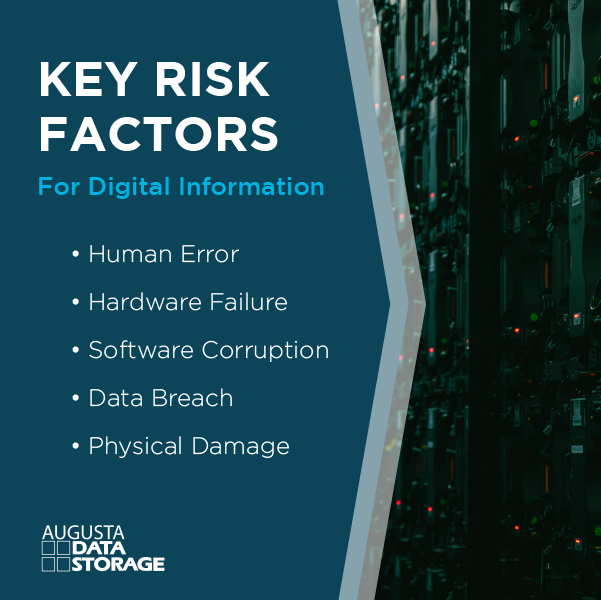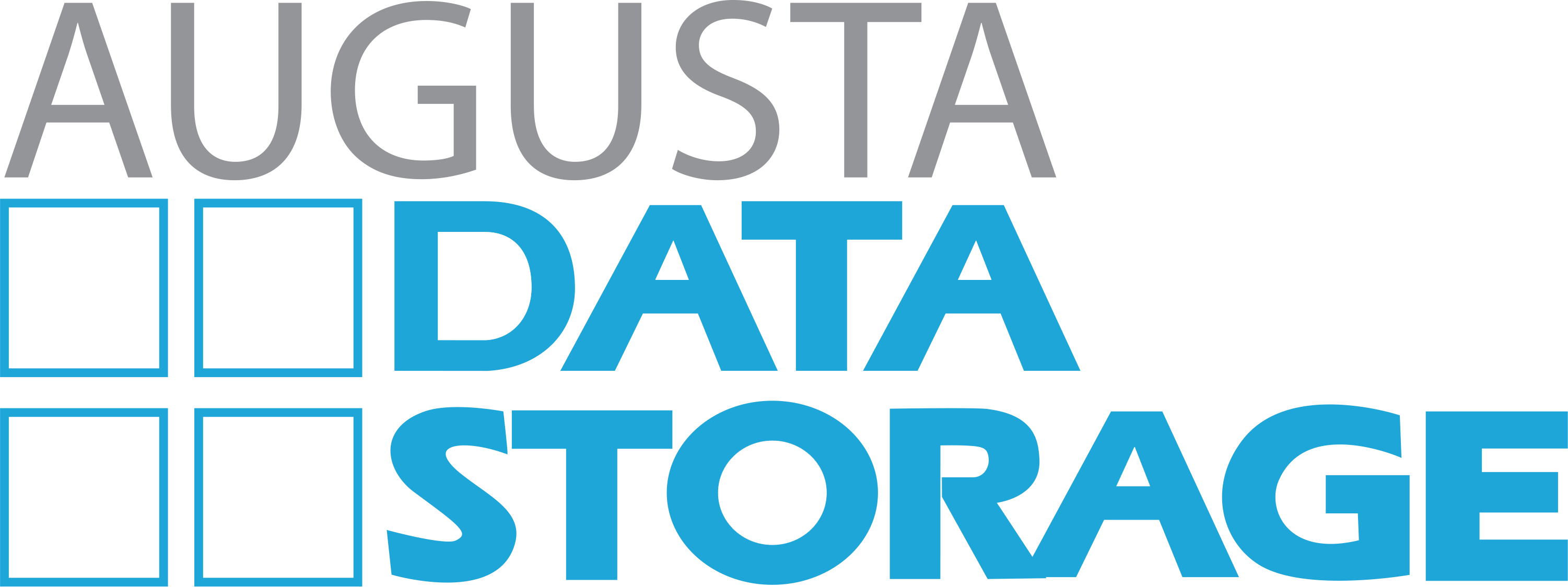Tips for Archiving and Protecting Digital Information

As a business owner, you know how important it is to keep your data backed up and safe. But what’s the best way to do that? And once you’ve backed up your data, where should you store it?
At Augusta Data Storage, we specialize in providing secure, off-site storage for backup discs and hard drives. Our vault is temperature and humidity controlled, and our team is available 24/7 to help you retrieve your data when needed.
Read on to learn more about the best ways to back up your business data, and why choosing a reliable storage solution like Augusta Data Storage is so important.
Data Backup Basics
Backing up your business data is one of the most important things you can do to protect your company in the event of a disaster. But with so many different storage options available, it can be hard to know where to start.
There are two main types of data backup: local and remote.
Local backups are stored onsite, usually on an external hard drive or server.
Remote backups are stored offsite, in the cloud, or at a data center.
The best way to protect your data is to use a mix of both local and remote backups. That way, if one storage method fails, you have another backup to fall back on.
How often should you back up your data?
The frequency of your backups will depend on how often your data changes. If you have a small business with only a few employees, you might only need to do a full backup once a week. But if you have a large company with multiple departments and lots of data, you might need to do a full backup every day.
In addition to full backups, you should also do incremental backups. Incremental backups only back up the files that have changed since the last backup, which can save time and storage space. How often you do incremental backups will depend on how often your data changes.
The most important thing is to have a regular backup schedule that you stick to. That way, you can be sure that your data is always safe and secure.
What are the best ways to back up electronic data?
There are a few options available for backing up electronic data, including cloud storage, external hard drives, and flash drives. Whichever method you choose, be sure to store your backup in a safe, secure location.
Creating a Layered Backup System
As we mentioned above, one of the best ways to protect your data is to use a mix of local and remote backup systems. This is often referred to as a layered backup system, which is any system that includes multiple levels of protection. This means that if one level of protection fails, the other levels will still be in place.

What is the value of a layered backup system?
Layered Backup systems provide an extra level of protection for your data, which can be invaluable if something happens to your primary backup method.
Layered systems don’t just protect you in the event of a breach or information loss event, they can also protect your information physically. If your location is damaged in a fire, flood, or natural disaster, having an off-site physical archive of the data ensures that this type of event doesn’t result in a total loss of information.
Do I need physical backup discs?
In most cases, yes. While cloud storage and external hard drives are good backup solutions, having physical copies of your data can be helpful in the event that you can’t access your electronic backups.
Where should I store backup discs?
Backup discs should be stored in a safe, secure location away from your business premises. This way, if something happens to your business, your backups will still be intact.
At Augusta Data Storage, we offer safe, secure storage for backup discs and hard drives. Our vault is temperature and humidity controlled, and our team is available 24/7 to help you retrieve your data when you need it. Contact us today to learn more about our services.
The Importance of Off-Site Storage
One of the most important things to consider when backing up your data is where you will store it. Storing your backups off-site is crucial in the event of a disaster, like a fire or flood. This way, even if your business premises are destroyed, your data will still be safe.
At Augusta Data Storage, we offer safe, secure off-site storage for backup discs and hard drives. Our vault is temperature and humidity controlled, and our team is available 24/7 to help you retrieve your data when you need it. Contact us today to learn more about our services.
Know your Risk Factors
Some of the biggest risk factors for digital information are human error, hardware failure, and software corruption. To help mitigate these risks, be sure to have a data management plan in place that details best practices for managing, storing, backing up and destroying secure information.

Human Error in Information Management
One of the most common risks to digital information is human error. This can include accidental deletion, misplaced media, or simple user error. To help mitigate this risk, be sure to have a plan in place for regularly backing up your data and keeping it safe.
Hardware Failure
Another big risk factor for digital information is hardware failure. This can include things like hard drive crashes, power surges, and water damage. To help mitigate this risk, be sure to use high-quality hardware and store it in a safe, secure location.
Software Corruption
Software corruption is another big risk factor for digital information. This can happen when software is improperly installed, updated, or deleted. To help mitigate this risk, be sure to keep your software up to date and backed up regularly.
Data Breach
A data breach is another big risk factor for digital information. This can happen when hackers gain access to your system and steal or delete your data. To help mitigate this risk, be sure to use strong security measures and keep your data backed up in a secure location.
Physical Damage
Although less common, the potential for physical damage to electronic data should be considered. This type of damage can occur during a fire, flood, or natural disaster. To help mitigate this risk, be sure to store your data in a safe, secure location away from your business premises.
Destroying Secure Information
When you no longer need data, it’s important to destroy it securely to protect your business and your customers. The best way to destroy digital data is to use a data destruction service, like the ones offered by Augusta Data Storage. Our team is certified and experienced in data destruction, and we use best-in-class methods to ensure that your data is completely destroyed. Contact us today to learn more about our e-waste and hard-drive shredding services.
